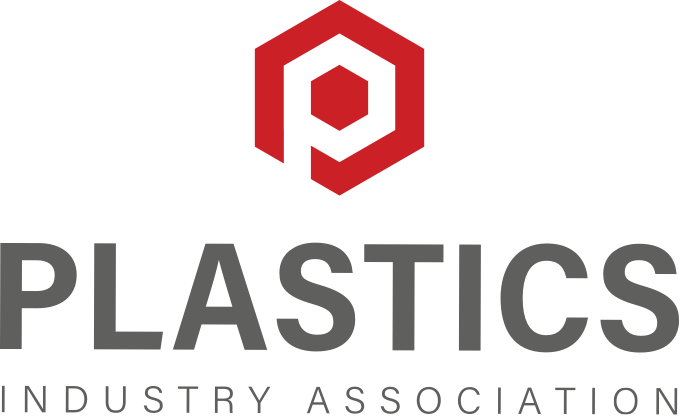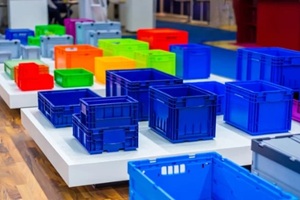January 27, 2025

With industries striving to meet growing sustainability goals, logistics operations are increasingly turning to innovative solutions to reduce their carbon footprints. One promising development is the use of recycled polypropylene pallets, which doesn’t just offer environmental benefits but also enhanced performance features that are essential for plastics logistics in modern supply chains.
With innovations like this, logistics companies can now improve efficiency while making significant strides toward a circular economy. These durable, reusable, and fully recyclable pallets present a compelling case for the future of sustainable logistics.
Recycled polypropylene pallets are making a significant impact in the plastics logistics sector by offering a sustainable alternative to traditional wooden pallets. These pallets, made from recycled plastic materials, are designed to meet the demands of modern plastics logistics, which include strength, efficiency, and a reduced carbon footprint.
These pallets employ innovative production techniques that support a circular economy, thereby reducing waste and conserving resources. The use of recycled polypropylene as a core material enhances their environmental benefits while providing exceptional performance characteristics suitable for a wide range of industrial applications.
Recycled polypropylene, derived from post-consumer and post-industrial plastic waste, offers a unique blend of durability and adaptability. The material is well-suited for logistics applications due to its high strength-to-weight ratio, which allows pallets to be lightweight while still handling heavy loads. It also exhibits excellent chemical resistance, making it ideal for industries that handle chemicals or require high levels of hygiene.
Recycled polypropylene is also much more resistant to weather conditions, providing a longer lifespan compared to materials that degrade when exposed to moisture or extreme temperatures. These properties make it an optimal choice for pallets that need to endure the rigors of continuous use in a variety of challenging environments.
Recycled polypropylene pallets bring numerous benefits that contribute to sustainable and efficient plastics logistics operations. Their advanced design and material characteristics offer several advantages over traditional pallet options, from improved durability to operational efficiencies.
One of the standout features of recycled polypropylene pallets is their enhanced mechanical properties, which ensure they perform well even under demanding conditions. These pallets are engineered for extraordinary load capacity, capable of carrying heavy weights without compromising their structural integrity. Flexural rigidity—the ability to resist bending under pressure—allows these pallets to retain their shape and stability even during intensive loading processes.

Furthermore, the dimensional stability of recycled polypropylene means that the pallets maintain consistent size and shape despite variations in temperature or humidity, which is necessary for compatibility with automated systems. These mechanical properties make recycled polypropylene pallets a reliable choice for companies prioritizing durability and performance in their logistics operations.
When comparing recycled polypropylene pallets to traditional wooden pallets and older recycled plastic models, several performance advantages become evident. Wooden pallets, while sturdy, are prone to damage from moisture, pests, and wear over time, which leads to frequent replacements and higher costs.
Older recycled plastic models, although an improvement in terms of reusability, often lack the advanced structural properties of modern polypropylene. In contrast, recycled polypropylene pallets offer superior resistance to deformation and environmental degradation, significantly extending their usable lifespan.
They also eliminate the safety risks of nails, splinters, or potential contamination, ensuring safer handling for workers. The durability and resilience of recycled polypropylene ultimately translate to reduced maintenance and replacement costs, making them a more cost-effective solution.

Stay ahead of the curve in plastic recycling innovation. Join PLASTICS today for access to exclusive resources, industry insights, and the latest advancements to drive sustainability and business growth.
The adaptability of recycled polypropylene pallets makes them suitable for diverse logistics applications. Their customization potential and compatibility with automated systems position them as a forward-thinking solution for companies aiming to enhance operational efficiency and sustainability.
Recycled polypropylene pallets offer significant customization opportunities, allowing businesses to adjust them to meet specific logistical requirements. The flexibility they provide includes modifications in size, load capacity, and even specialized surface textures to improve friction or stability. Companies can also choose from different pallet configurations—such as runner options or modular designs—that cater to unique storage and transportation needs.
This level of customization ensures that recycled polypropylene pallets can be integrated seamlessly into existing supply chain operations, accommodating specialized storage systems or automated machinery. This kind of advanced adaptability supports a wide range of industries, from retail to chemical handling, that require tailored logistical solutions.

The versatility of recycled polypropylene pallets extends beyond customization, making them compatible with the latest advancements in warehouse automation and robotic palletizing. Their consistent dimensional accuracy and strength make them ideal for use in automated handling systems, reducing the risk of jams or malfunctions that can occur with inconsistent pallet sizes.
These pallets are also designed to work efficiently in robotic sorting and stacking systems, further enhancing productivity in logistics environments. This compatibility streamlines processes while reducing labor costs and minimizes manual handling risks, offering a tangible benefit to companies aiming for more efficient and automated plastics logistics workflows.
The evolution of recycled polypropylene pallets exemplifies how the plastics industry is driving progress in sustainable plastics logistics solutions across the supply chain. To stay informed about the latest innovations in plastic materials and their applications across various industries, consider exploring the extensive resources offered by the Plastics Industry Association.
If you’re seeking industry insights, technical knowledge, or networking opportunities, PLASTICS offers a rich source of information for you to use. Join the association today to become part of a community dedicated to shaping the future of the global plastics industry.
PLASTICS and the Future Leaders in Plastics (FLiP) Committee are devoted to supporting and encouraging the next generation of plastics leaders who will play a crucial role in the innovation, technology and future of the plastics industry. FLiP’s mission is to provide young professionals under the age of 40 the exposure, education and resources they need to build lifelong careers in plastics. Want to join? Want to get your employees involved? Email: flip@plasticsindustry.org